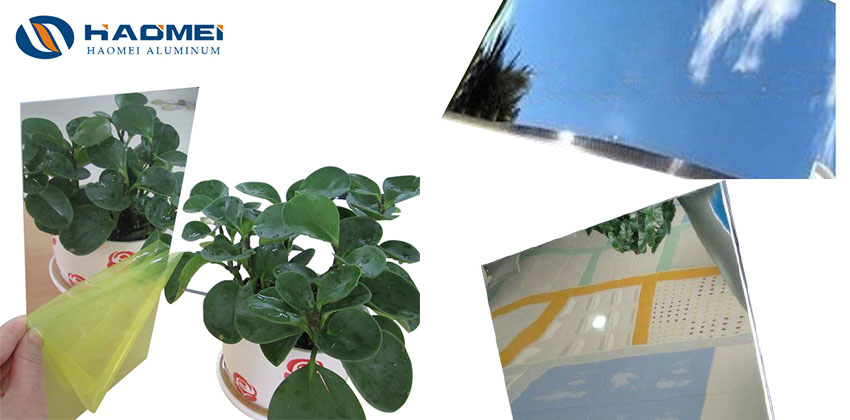Advantages of Reflective Aluminum Mirror Sheet
June 22, 2018
Reflective aluminum mirror sheet is more and more widely applied in enlarged industries. We may contact it every day without even realizing it. The sheet serves as raw materials for not only common things like decorative boards and reflective panels but also upscale items like delicate gift boxes and cosmetic packaging. What outstanding advantages, then, make it so applicable and popular?

A reflective aluminum sheet is more economical in comparison with other materials. Cost remains to be the first element considered by decision makers in choosing materials for any product, regardless whether it’s upmarket or not, because the final price of a product largely depends on cost of its raw materials, and price proves to be the most powerful strength in market. Much cheaper than copper and steel, aluminum becomes top choice in manufacturing industries. Among leading reflective aluminum sheet suppliers shows excellent adaptability to diverse treatments as well. Made of top quality aluminum ingots, the base sheet goes through surface treatment of anodizing, chemical polishing, atomizing, chemical sanding, electronic polishing, staining, hole sealing and so on. Besides, the sheet is processed by mechanical polishing, and relative anodizing steps can be simplified. For example, there’s no need to remove plating film before sand spraying or anodizing. Rough granularity of sanded sheet reaches as high as 240 and above. Leaving out of preprocessing for printing or punching will not influence reflective effect of the mirror sheet, either. Further more, perfect industrial properties of reflective aluminum mirror sheets make it ideal material for various products. It has even and medium hardness, suitable for punching, stretching or bending without deformation or cracks. Its anti-corrosion performance is only second to that of stainless steel. It withstands temperature which most targeted products might be confronted with.
In a word, reflective aluminum sheets have won popularity because of their economical cost, excellent adaptability to diverse treatment, simplified anodizing steps and perfect industrial properties. However, such a sheet has weaknesses as well. Compared with steel, its more vulnerable to corrosion and withstands less pressure, which becomes a crucial factor restricting its application scope.


 Nydia
Nydia
 Sales Manager
Sales Manager